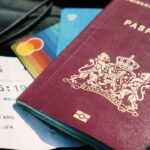Spain’s Citizenship by Democratic Memory Law, also known as the Grandchildren’s Law, was introduced in October 2022 to address historical injustices. It grants Spanish citizenship to descendants of Spaniards who were forced into exile for political, ideological, or other reasons, as well as those affected by past nationality restrictions. Originally set for two years, the law was extended until October 2025.
This article explains everything about Spain citizenship by Democratic Memory Law, including who can apply, the required documents, and the application process to obtain Spanish nationality.
- What is Spain’s Citizenship by Democratic Memory Law
- Benefits of Spanish Citizenship Through the Democratic Memory Law
- Who can apply for Spanish Citizenship under the Grandchildren’s Law?
- Key Requirements for Spanish Citizenship Through the Democratic Memory Law
- Required Documents for Spanish Citizenship Through the Democratic Memory Law
- Application Process for Spanish Citizenship Through the Democratic Memory Law
- How long does it take to get Spain Citizenship by Democratic Memory Law?
What is Spain's Citizenship by Democratic Memory Law
The Spanish Citizenship by Democratic Memory Law, or “Grandchildren’s Law,” allows certain individuals to obtain Spanish nationality based on family ties to Spain. It grants citizenship to descendants of Spaniards exiled due to political persecution, war, or dictatorship without requiring residency or naturalization tests.
Spain follows jus sanguinis (right of blood), but many lost their nationality due to historical events. During the Spanish Civil War and Franco’s rule, thousands fled, leaving generations without Spanish citizenship.
To address this, Spain passed the law in October 2022, enabling eligible descendants to reclaim nationality. Originally valid for two years, it was extended until October 2025.
Benefits of Spanish Citizenship Through the Democratic Memory Law
 Visa-free travel
Visa-free travel
A Spanish passport allows travel to 173 countries without a visa or with visa-on-arrival access, including the Schengen Area, the UK, Canada, and Japan.
 Powerful passport
Powerful passport
Spain holds one of the world’s most powerful passports, ranking 5th on the Global Mobility Index and 20th overall on the Global Passport Index by Global Citizen Solutions.
 Dual citizenship allowed
Dual citizenship allowed
Those who acquire Spanish nationality through the Democratic Memory Law can get dual citizenship meaning that keep their existing nationality, especially if they are from Latin American countries, Portugal, Andorra, the Philippines, or Equatorial Guinea.
 No residency requirement
No residency requirement
Unlike other naturalization processes, applicants do not need to live in Spain before or after obtaining citizenship. The process can be completed at a Spanish consulate.
 Citizenship for descendants
Citizenship for descendants
Once citizenship is granted, children under 19 years old can also apply for Spanish nationality if they are under the legal custody of the new Spanish citizen, ensuring family reunification opportunities.
Who can apply for Spanish Citizenship under the Grandchildren’s Law?
You may be eligible for Spanish nationality under the Grandchildren’s Law if you meet any of the following criteria:
- You were born outside Spain, and your parent or grandparent was originally Spanish.
- Your parent or grandparent lost or renounced Spanish nationality because they were forced into exile.
- Your mother lost her Spanish nationality by marrying a foreigner before Spain’s 1978 Constitution changed the law.
- You are an adult child of someone who gained Spanish nationality under the Historical Memory Law (2007) or the Democratic Memory Law (2022) (also known as “Ley de Nietos”).
- You previously applied for Spanish nationality as a non-original Spaniard under Article 20 of the Civil Code because your parent gained citizenship through the Historical Memory Law. Now, you can request Spanish nationality by origin instead.
Key Requirements for Spanish Citizenship Through the Democratic Memory Law
To obtain Spanish nationality under the Democratic Memory Law, applicants must be able to prove eligibility which means:
- Be a descendant of a Spanish parent or grandparent who was originally Spanish.
- Show that the Spanish ancestor lost or renounced Spanish nationality due to exile or, if applicable, that a Spanish female ancestor lost her nationality by marrying a foreigner before 1978.
Required Documents for Spanish Citizenship Through the Democratic Memory Law
To apply for Spanish nationality under this law, applicants need to provide documents that prove their identity, Spanish ancestry, and, in some cases, evidence of exile.
1. Proof of identity
- Applicant’s birth certificate (issued by the local Civil Registry).
- Valid passport or national ID from the applicant’s country of residence.
2. Proof of Spanish ancestry
Applicants must show that their parent or grandparent was originally Spanish by providing:
- Literal Spanish birth certificate of the Spanish parent or grandparent issued by a Spanish Civil Registry.
- If applying as a grandchild, the birth certificate of the applicant’s parent (the child of the Spanish grandparent).
3. Proof of exile (If Applicable)
If the application is based on exile, additional documents are needed to show that the Spanish parent or grandparent was forced to leave Spain due to political, ideological, religious, or personal reasons. Accepted documents include:
- Official Spanish exile pension records prove that the Spanish government recognized them as an exile.
- Refugee status documents from the United Nations or host country authorities that supported Spanish refugees.
- Certificates from political parties, unions, or recognized institutions confirming involvement in Spanish exile cases.
Presumption of exile based on departure date
- Those who left Spain between July 18, 1936, and December 31, 1955, are automatically presumed to have been exiled. Proof of departure is required.
- Those who left Spain between January 1, 1956, and December 28, 1978, must provide additional documents to confirm their exile status.
Proof of loss of nationality due to marriage (If Applicable)
For individuals applying because their Spanish mother who lost her nationality by marrying a foreigner before the 1978 Constitution, the following documents are required:
- Applicant’s birth certificate (issued by the local Civil Registry).
- Birth certificate of the Spanish mother (issued by a Spanish Civil Registry).
- The marriage certificate of the mother proves she married a foreigner before December 29, 1978.
- For marriages that took place between August 5, 1954, and December 28, 1978, both of the following are also required:
- Proof that the mother acquired her husband’s nationality.
- A document showing the nationality laws of the husband’s country at the time of the marriage, confirming that she automatically lost her Spanish nationality upon marriage.
Additional supporting documents
To strengthen proof of exile, the applicant can submit:
- Passport or travel records showing entry into the host country.
- Spanish consular registration documents from the country where they settled.
- Civil Registry certificates from the host country (e.g., marriage, birth, or death records).
- Naturalization certificate from the host country, proving they acquired a new nationality.
- Documents from the host country showing year of arrival, such as immigration records or transport tickets.
Application Process for Spanish Citizenship Through the Democratic Memory Law
Applying for Spanish nationality under the law of Democratic Memory involves several steps. This process takes place at Spanish Consulates abroad or Civil Registry offices in Spain and requires specific documents to prove eligibility.
1. Gather the required documents

- Proof of identity (passport, national ID).
- Birth certificates (applicant, Spanish parent or grandparent).
- Proof of exile or loss of nationality due to marriage (if applicable).
- Spanish registration certificates (if required).
Request the registration certificates electronically through the Ministry of the Presidency, Justice, and Relations with the Parliament. Use the standard application form for a literal birth certificate. If a birth record for the Spanish parent or grandparent is missing, provide a baptismal certificate from a parish or diocesan archive along with a negative birth registration certificate from the Civil Registry.
2. Submit the application
Applications must be filed in person at the Spanish Consulate in the applicant’s country of residence or at a Spanish Civil Registry if they are in Spain. Some consulates allow appointment scheduling online, while others require booking via email or phone.
3. Application review and processing
The consulate or registry office will verify the submitted documents and determine if the applicant meets the requirements. If additional documents are needed, the authorities may request further proof. The review process can take several months to over a year, depending on the workload of the consulate or registry office.
4. Approval and Oath of Allegiance
If the application is approved, the applicant must take an oath of allegiance to Spain. This step is usually done at the Spanish Consulate or Civil Registry, where the application was submitted. The applicant will then be issued a Spanish nationality certificate.
5. Obtain a Spanish passport and national ID
After obtaining Spanish nationality, the applicant can apply for a DNI (Spanish National ID Card) and a Spanish passport at the nearest Spanish Consulate or a Police Station in Spain.
How long does it take to get Spain Citizenship by Democratic Memory Law?
The time it takes to obtain Spain citizenship by the Democratic Memory Law varies. While the law allows a two-year window (with possible extensions) to apply, the processing time itself can take several months to over a year, depending on the complexity of the case and the workload of the Spanish authorities.
How Can Global Citizen Solutions Help You?
Global Citizen Solutions is a boutique migration consultancy firm with years of experience delivering bespoke residence and citizenship by investment solutions for international families. With offices worldwide and an experienced, hands-on team, we have helped hundreds of clients worldwide acquire citizenship, residence visas, or homes while diversifying their portfolios with robust investments.
We guide you from start to finish, taking you beyond your citizenship or residency by investment application.

Frequently Asked Questions about Spain Citizenship by Democratic Memory Law?
What is Spain Citizenship by Democratic Memory Law?
Spain Citizenship by Democratic Memory Law is a law that was introduced in October 2022 that allows descendants of exiled Spaniards and individuals affected by past nationality restrictions to reclaim Spanish citizenship. It was extended until October 2025.
H3 Who can apply for Spanish citizenship under this law?
Applicants include:
- Descendants (children and grandchildren) of Spaniards who lost or renounced their nationality due to exile.
- Children of Spanish women who lost their nationality by marrying a foreigner before 1978.
- Adult children of individuals who obtained Spanish nationality through previous historical memory laws.
Do I need to live in Spain to apply?
No, residency in Spain is not required to apply for citizenship under this law.
Can I keep my current nationality?
Yes, dual citizenship is allowed under the Democratic Memory Law.
How long does the application process take?
Processing times vary, but applications are handled through Spanish Consulates and Civil Registries. It may take several months to over a year, depending on individual circumstances.
Do I need to pass a Spanish language or culture test?
No, applicants under this law do not need to take a Spanish language or culture test.
Can my children also obtain Spanish citizenship?
Yes, once granted Spanish citizenship, applicants can pass it to their children under 19 years old.

 Patricia Casaburi
Patricia Casaburi 
